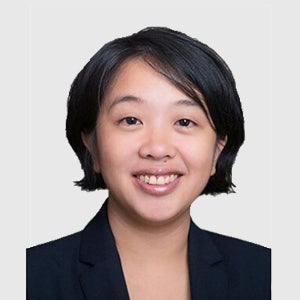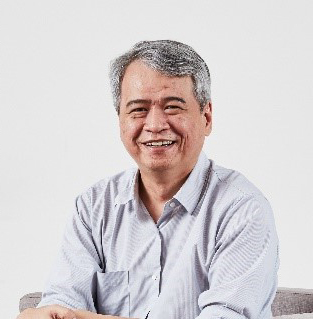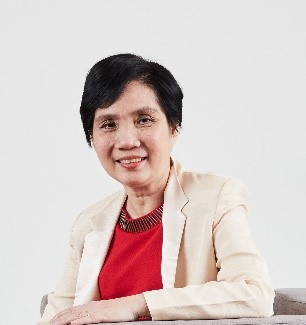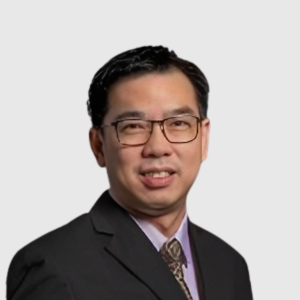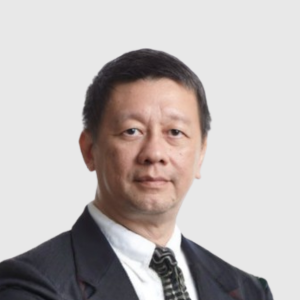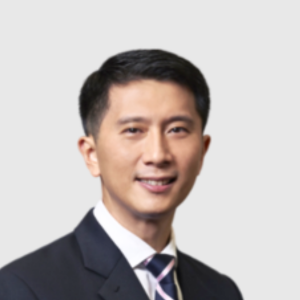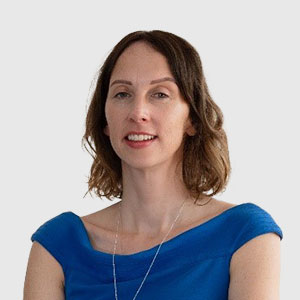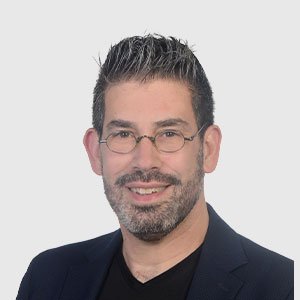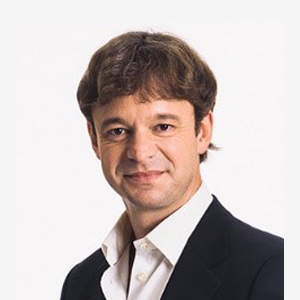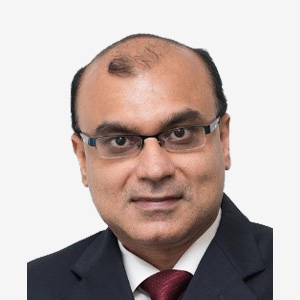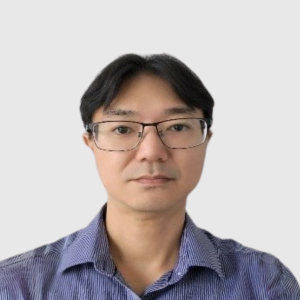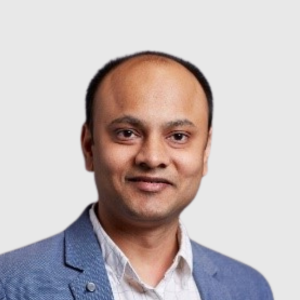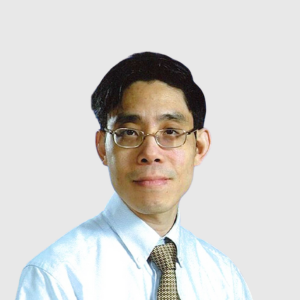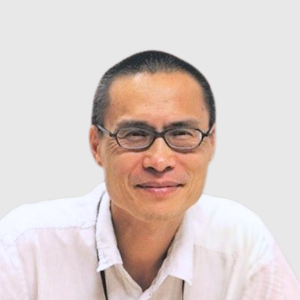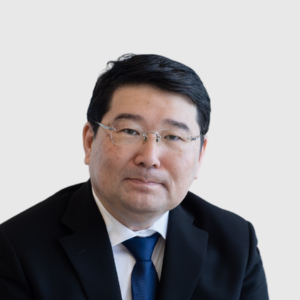Master of Science in Infectious Disease Emergencies (MSc IDE)
Become a Leader in Health Crisis Preparedness and Response
Overview
The Master of Science in Infectious Disease Emergencies (MSc IDE) at the NUS Yong Loo Lin School of Medicine is a postgraduate programme available full-time (1 year) or part-time (2 years). The MSc IDE equips students with advanced knowledge and skills to prepare for and respond to infectious disease crises. Our curriculum combines rigorous academic study with practical, real-world applications to address the complexities of outbreak management and public health emergencies. Graduates will be well-positioned for impactful roles in health ministries and international, national and subnational public health organisations.
- Leverages local and global outbreak experiences, including COVID-19, with coursework contextualised to students' home countries
- Distinguished faculty of regional and international experts bringing extensive experience and knowledge to the classroom
- Flexible hybrid learning approach balancing in-person and virtual engagement and fosters practical skills, professional networking and interaction with expert faculty
Intake: July 2026
1 Year (Full-time)
2 Years (Part-time)
Application Start Date:
1 November 2025
30 April 2026
June 2026
Ideal candidates for the programme
Local and international postgraduate students with a medical or health sciences-related Bachelor’s degree, and early to mid-career professionals, at national, subnational, or institutional levels, as well as specialists in various aspects of outbreak response.
Graduates can pursue careers in roles such as:
- Epidemiologist
- Research Scientist
- Public Health Specialist
- Policy Advisor
- Infection Control Clinician
Programme Faculty

Prof Dale Fisher
Programme Director
NUS Yong Loo Lin School of Medicine

Dr Louisa Sun
Deputy Programme Director
NUS Yong Loo Lin School of Medicine
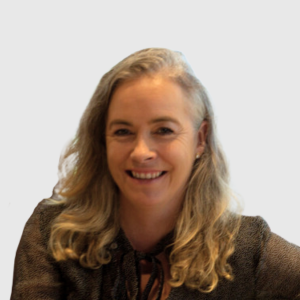
Dr Claire Canning
Education Specialist
NUS Yong Loo Lin School of Medicine
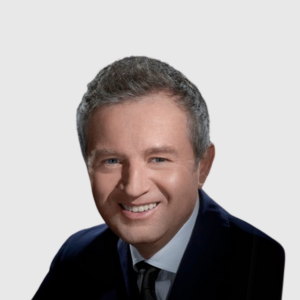
Dr Dariusz P. Olszyna
Course Lead
NUS Yong Loo Lin School of Medicine
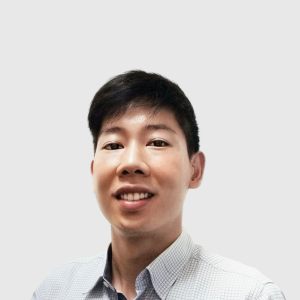
Dr Sean Wu
Course Lead
NUS Yong Loo Lin School of Medicine

A/Prof David Allen
Course Lead
NUS Yong Loo Lin School of Medicine
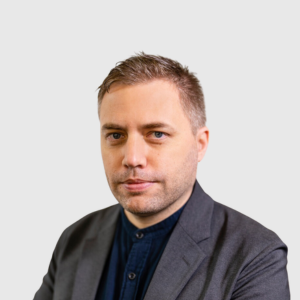
Prof Alex Cook
Course Lead
NUS Yong Loo Lin School of Medicine

A/Prof Steven Ooi
Course Lead
NUS Yong Loo Lin School of Medicine
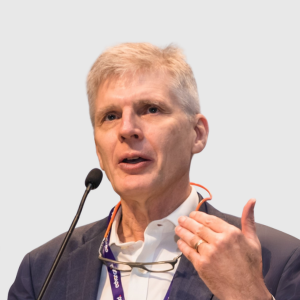
Prof David Paterson
Course Lead
NUS Yong Loo Lin School of Medicine

Dr Andrew G. Letizia
Co-Course Lead
NUS Yong Loo Lin School of Medicine
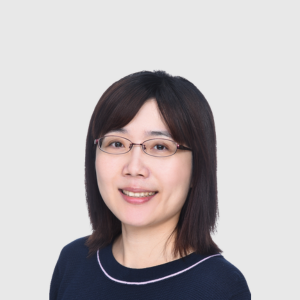
Dr Gao Qi
Co-Course Lead
NUS Yong Loo Lin School of Medicine

Dr Mo Yin
Co-Course Lead
NUS Yong Loo Lin School of Medicine

Prof Dale Fisher
Programme Director
NUS Yong Loo Lin School of Medicine

Dr Louisa Sun
Deputy Programme Director
NUS Yong Loo Lin School of Medicine

Dr Claire Canning
Education Specialist
NUS Yong Loo Lin School of Medicine

Dr Dariusz P. Olszyna
Course Lead
NUS Yong Loo Lin School of Medicine

Dr Sean Wu
Course Lead
NUS Yong Loo Lin School of Medicine

A/Prof David Allen
Course Lead
NUS Yong Loo Lin School of Medicine

Prof Alex Cook
Course Lead
NUS Yong Loo Lin School of Medicine

A/Prof Steven Ooi
Course Lead
NUS Yong Loo Lin School of Medicine

Prof David Paterson
Course Lead
NUS Yong Loo Lin School of Medicine

Dr Andrew G. Letizia
Co-Course Lead
NUS Yong Loo Lin School of Medicine

Dr Gao Qi
Co-Course Lead
NUS Yong Loo Lin School of Medicine

Dr Mo Yin
Co-Course Lead
NUS Yong Loo Lin School of Medicine
Graduation Requirements
Total Units Required: 40 Units
To graduate, students have to:
Complete 3 compulsory core courses (4 units each, 12 units in total)
- IDE5001 Leadership and Coordination
- IDE5002 Surveillance and Epidemiology
- IDE5003 Communications and Engagement in a Crisis
+ Choose and complete 7 out of 8 offered elective courses (4 units each, 28 units in total)
- IDE5004 Clinical Management, Infection Prevention and Control (IPC), and Facility Infrastructure
- IDE5005 Interventions for Outbreak Control
- IDE5006 Research in a Pandemic
- IDE5007 Mental Health and Support for the Vulnerable
- IDE5008 Laboratory
- IDE5009 Training for Outbreak Response
- IDE5010 Outbreak Prone Pathogens
- IDE5011 Infectious Disease Emergency Response Modelling
Proposed Study Plan
Please refer HERE for the proposed study plan for full-time and part-time students.
Study Period
- Full-time students are expected to complete the programme within 12 — 24 months. The maximum candidature is 24 months ; excluding Leave of Absence (LOA).
- Part-time students are expected to complete the programme within 24 — 36 months. The maximum candidature is 36 months ; excluding Leave of Absence (LOA).
Important:
Before submitting your application:
- Download and read the Instructions to Candidates (online applications).
- Review the Checklist for Applicants. Please upload all supplementary forms and relevant supporting documents according to the checklist when submitting your online application.
Application Tips:
Helpful tips for preparing for a strong application
- Begin by gathering required documents and understanding the application details thoroughly.
- Craft a thoughtful statement of intent outlining your motivation and how you hope the programme can deepen your understanding in this field.
- Highlight your relevant academic and professional background, demonstrating its alignment with your work and interest in infectious disease emergency response.
- Choose referees who can articulate why your participation in the MSc IDE programme is crucial.
- Adhere to deadlines and ensure all required documents are submitted on time.
Minimum Requirements:
Academic Qualifications
- Graduates with bachelor’s degrees in M.B.B.S., or health sciences related discipline. Candidates with other qualifications and relevant industry experience may be considered on a case-by-case basis.
Professional Experience
Undergraduate Medical Degree:
a. One year of general clinical experience, excluding housemanship for Singapore-trained doctors
b. One year of work experience in public health / health administration / occupational and environmental health or having entered clinical specialty training
Undergraduate Non-Medical Degree:
a. Two years of work experience in public health / health promotion / health administration / occupational and environmental health / clinical research / other related fields
Language Proficiency
- Test of English as a Foreign Language (TOEFL) minimum score of 85 (Internet-based), or
- International English Language Testing System (IELTS) minimum Academic score 6.0
Tuition Fees:
Total Tuition Fees (for students enrolled in the Academic Year 2026/2027 only): S$64,310 (inclusive of 9% Goods & Services Tax (GST))
The payment schedule is as follows:
Part-Time Students
Full-Time Students
International Students
S$29,655.00
S$14,827.50
S$29,655.00
S$14,827.50
–
Year 2 Semester 2
S$14,827.50
–
Acceptance Fee (Including GST):
S$5,000
All students, whether registered on a full-time or part-time basis, are charged the miscellaneous student fees. These are due at the same time as the tuition fees.
For more information, please visit the Office of the University Registrar website.
Note:
- Application fee for successful submission is S$50 (including GST).
- All Singaporeans or PRs will receive a 40% tuition fee rebate.
- All NUS alumni will receive a 20% tuition fee rebate.
- Tuition fees are subjected to annual review and inflation.
- Upon acceptance of offer, an acceptance fee of S$5,000 (including GST) will be charged on the Graduate Admission System (GDA). Acceptance fees is non-refundable, non-transferable and will be credited towards the tuition fee once the programme starts.
The MSc IDE programme does not offer full scholarships at this stage. However, we provide the CIDER Fellowship, which significantly reduces financial barriers by covering 60% of the tuition fee — a substantial rebate for eligible candidates. You may also wish to explore other scholarships listed below, offered by reputable organisations. These scholarships may cover various aspects of your study expenses. Please review each option carefully to determine your eligibility and application requirements.
The MSc IDE is available as a 1 year (full-time) or 2 years (part-time) degree programme.
Graduation Requirements
Total Units Required: 40 Units
To graduate, students have to:
Complete 3 compulsory core courses (4 units each, 12 units in total)
- IDE5001 Leadership and Coordination
- IDE5002 Surveillance and Epidemiology
- IDE5003 Communications and Engagement in a Crisis
+ Choose and complete 7 out of 8 offered elective courses (4 units each, 28 units in total)
- IDE5004 Clinical Management, Infection Prevention and Control (IPC), and Facility Infrastructure
- IDE5005 Interventions for Outbreak Control
- IDE5006 Research in a Pandemic
- IDE5007 Mental Health and Support for the Vulnerable
- IDE5008 Laboratory
- IDE5009 Training for Outbreak Response
- IDE5010 Outbreak Prone Pathogens
- IDE5011 Infectious Disease Emergency Response Modelling
Proposed Study Plan
Please refer HERE for the proposed study plan for full-time and part-time students.
Study Period
- Full-time students are expected to complete the programme within 12 — 24 months. The maximum candidature is 24 months ; excluding Leave of Absence (LOA).
- Part-time students are expected to complete the programme within 24 — 36 months. The maximum candidature is 36 months ; excluding Leave of Absence (LOA).
Important:
Before submitting your application:
- Download and read the Instructions to Candidates (online applications)
- Review the Checklist for Applicants. Please upload all supplementary forms and relevant supporting documents according to the checklist when submitting your online application.
Helpful tips for preparing for a strong application:
- Begin by gathering required documents and understanding the application details thoroughly.
- Craft a thoughtful statement of intent outlining your motivation and how you hope the programme can deepen your understanding in this field.
- Highlight your relevant academic and professional background, demonstrating its alignment with your work and interest in infectious disease emergency response.
- Choose referees who can articulate why your participation in the MSc IDE programme is crucial.
- Adhere to deadlines and ensure all required documents are submitted on time.
To be eligible for enrolment, applicants must meet the following requirements. However, please note that selection of candidates is based on a competitive basis and candidates with relevant industry experience will be considered favourably. Meeting the minimum requirements does not guarantee admission into the programme.
Minimum Requirements:
Academic Qualifications
- Graduates with bachelor’s degrees in M.B.B.S., or health sciences related discipline. Candidates with other qualifications and relevant industry experience may be considered on a case-by-case basis.
Professional Experience
Undergraduate Medical Degree:
- One year of general clinical experience, excluding housemanship for Singapore-trained doctors.
- One year of work experience in public health / health administration / occupational and environmental health or having entered clinical specialty training.
Undergraduate Non-Medical Degree:
- Two years of work experience in public health / health promotion / health administration / occupational and environmental health / clinical research / other related fields.
Language Proficiency
Proficiency in conversational English is essential. For applicants whose native tongue and medium of university instruction is not completely in English:
- Test of English as a Foreign Language (TOEFL) minimum score of 85 (Internet-based), or
- International English Language Testing System (IELTS) minimum Academic score 6.0 research at the international level
Tuition Fees:
Total Tuition Fees (for students enrolled in the Academic Year 2026/2027 only): S$64,310 (inclusive of 9% Goods & Services Tax (GST))
The payment schedule is as follows:
Year 1 Semester 1
Part-Time Students
S$14,827.50
Full-Time Students
S$29,655
International Students
–
Year 1 Semester 2
Part-Time Students
S$14,827.50
Full-Time Students
S$29,655
International Students
–
Year 2 Semester 1
Part-Time Students
S$14,827.50
Full-Time Students
–
International Students
Year 2 Semester 2
Part-Time Students
S$14,827.50
Full-Time Students
–
International Students
Acceptance Fee (Including GST):
S$5,000
For more information, please visit the Office of the University Registrar website.
Note:
- Application fee for successful submission is S$50 (including GST).
- All Singaporeans or PRs will receive a 40% tuition fee rebate.
- All NUS alumni will receive a 20% tuition fee rebate.
- Tuition fees are subjected to annual review and inflation.
- Upon acceptance of offer, an acceptance fee of S$5,000 (including GST) will be charged on the Graduate Admission System (GDA).
Acceptance fees is non-refundable, non-transferable and will be credited towards the tuition fee once the programme starts.
The MSc IDE programme does not offer full scholarships at this stage. However, we provide the CIDER Fellowship, which significantly reduces financial barriers by covering 60% of the tuition fee — a substantial rebate for eligible candidates. You may also wish to explore other scholarships listed below, offered by reputable organisations. These scholarships may cover various aspects of your study expenses. Please review each option carefully to determine your eligibility and application requirements.
For International Students, click here to find out the options available to you.
Frequently Asked Questions
What is the maximum candidature?
The Master of Science in Infectious Disease Emergencies (MSc IDE) programme offers both a 1-year full-time and a 2-year part-time option.
- Full-time students are expected to complete the programme within 1 year (12 months), with a maximum candidature of 24 months, excluding Leave of Absence (LOA).
- Part-time students are expected to finish within 2 years (24 months), with a maximum candidature of 36 months, excluding LOA.
For more information on candidature matters such as extensions, transfers or conversions (between full-time and part-time status), or termination, please refer to the Office of the Registrar’s guidelines: Candidature Matters.
What are the continuation and graduation requirements?
Continuation Requirements
To continue in the programme, a student must maintain satisfactory progress.
The following GPA guidelines apply:
- GPA below 3.00 (but ≥2.50) for three consecutive semesters:
- An academic warning in the first semester.
- Probation if the GPA remains below 3.00 in the second semester.
- Dismissal and denial of re-admission if the GPA is still below 3.00 in the third consecutive semester.
- GPA below 2.50 for two consecutive semesters:
- Probation in the first semester.
- Dismissal in the second consecutive semester.
Graduation Requirements
- Complete 3 compulsory core courses and 7 elective courses.
- Minimum GPA of 3.00
What is the recommended workload per semester?
Please refer to the study plan under “Study Plan” tab, which outlines the courses to take each semester and the expected workload for both full-time and part-time students. Plan and pace your course selections wisely across the semesters to ensure timely graduation.
Is the MSc IDE a research or coursework programme?
The MSc IDE is a coursework-based Master’s programme, focusing on practical and theoretical knowledge essential for addressing infectious disease emergencies.
Are there specialisations offered in the MSc IDE programme?
No, the MSc IDE programme does not offer specialisations at the moment.
What are the next steps after acceptance?
For local students
Here’s a checklist to help you prepare for your enrolment:
Pre-Admission Medical Examination
You may complete your medical examination at the University Health Centre (UHC) or with a registered private physician. Reports must be in English; other languages will not be accepted. Please follow the provided instructions carefully. For more details, visit: Pre-Admission Medical Examination.
Note that all admitted MSc IDE students are required to undergo a pre-admission medical examination before enrolment. The university reserves the right to refuse your admission should you decide to decline this process.
For international students
Here’s a checklist to help you prepare for your time in Singapore:
Student’s Pass and Entry Visa
Apply for a Student’s Pass if you are a foreigner who has been accepted for admission under the MSc IDE programme. You do not need to apply for a Student’s Pass if you hold a valid Dependant’s Pass, Long-Term Visit Pass or Immigration Exemption Order.
Please follow the instructions to apply for your Student Pass provided here.
Accommodation
Finding the right place to live is crucial for a successful graduate experience. We recommend exploring both on-campus and off-campus options:
On-Campus Accommodation: Managed by the Office of Student Affairs, on-campus residences provide convenience and security, but are only available to full-time NUS students and typically reserved for students staying for the full semester. Due to high demand, not all applicants may secure a spot. We advise students to also explore off-campus options and budget accordingly. For detailed information, please refer to the On-Campus Accommodation Guide.
Off-Campus Accommodation: If you need short-term leases or have specific requirements, consider off-campus options. A non-exhaustive guide of these options, curated by the Office of Student Affairs, is available here. To ensure you have housing upon arrival, it’s best to arrange off-campus accommodation before leaving your home country. While we aim to offer useful information, please note that the University do not directly oversee these arrangements.
Travel Plans
Plan your journey to Singapore well in advance of your course start date to ensure you have ample time to settle in before the semester begins.
Pre-Admission Medical Examination
You may complete your medical examination at the University Health Centre (UHC) or with a registered private physician. Reports must be in English; other languages will not be accepted. Please follow the provided instructions carefully. For more details, visit: Pre-Admission Medical Examination.
Note that all admitted MSc IDE students are required to undergo a pre-admission medical examination before enrolment. The university reserves the right to refuse your admission should you decide to decline this process.
Bank Account Setup
If necessary, review the specific requirements on your chosen bank’s website and reach out to the bank directly for any questions.
Cost of Living
Check estimated living expenses for a single student in Singapore here. These estimates vary based on personal needs and lifestyle, so use them as a general guide to help plan your expected living costs.
Get everything organised and prepare for a successful start to your semester!
When and where do I register for my courses?
Compulsory core courses will be pre-allocated, but students must select and register for their desired electives via CourseReg@EduRec, the university’s consolidated course registration platform.
Registration dates, usually set slightly before the semester begins, will be announced closer to date. For the latest details, visit CourseReg Schedule.
Why should I choose NUS Medicine for my graduate studies?
As a global leader in education, the National University of Singapore (NUS) is placed in the top 8 universities worldwide and first in Asia by the latest QS World University Rankings. The NUS Yong Loo Lin School of Medicine (NUSMED) in particular ranks 1st in Asia for medical education by QS. It has a longstanding tradition of providing top-notch medical and health sciences education, boasting cutting-edge research and exceptional faculty, standing at the forefront of training medical professionals. Its global reputation and international outlook make a master’s degree from NUSMED highly valued. Our master’s course provides an innovative approach emphasizing experiential learning and real-world application, utilising advanced facilities and our global network to prepare students for the complex challenges of modern healthcare.
NUSMED goes beyond academics, fostering holistic development by nurturing leadership, critical thinking, and innovation, ensuring graduates possess the skills and confidence to make meaningful contributions to the field.
For professionals ready to make an impact, this programme offers a unique opportunity to gain targeted knowledge, skills, and connections necessary to lead and innovate in the rapidly evolving field of infectious disease emergencies.
Where can I find the NUS academic calendar?
If you are unable to find the answer to your query in the list of FAQs, you can email us at cider@nus.edu.sg and we will reply to you within 3 working days.




